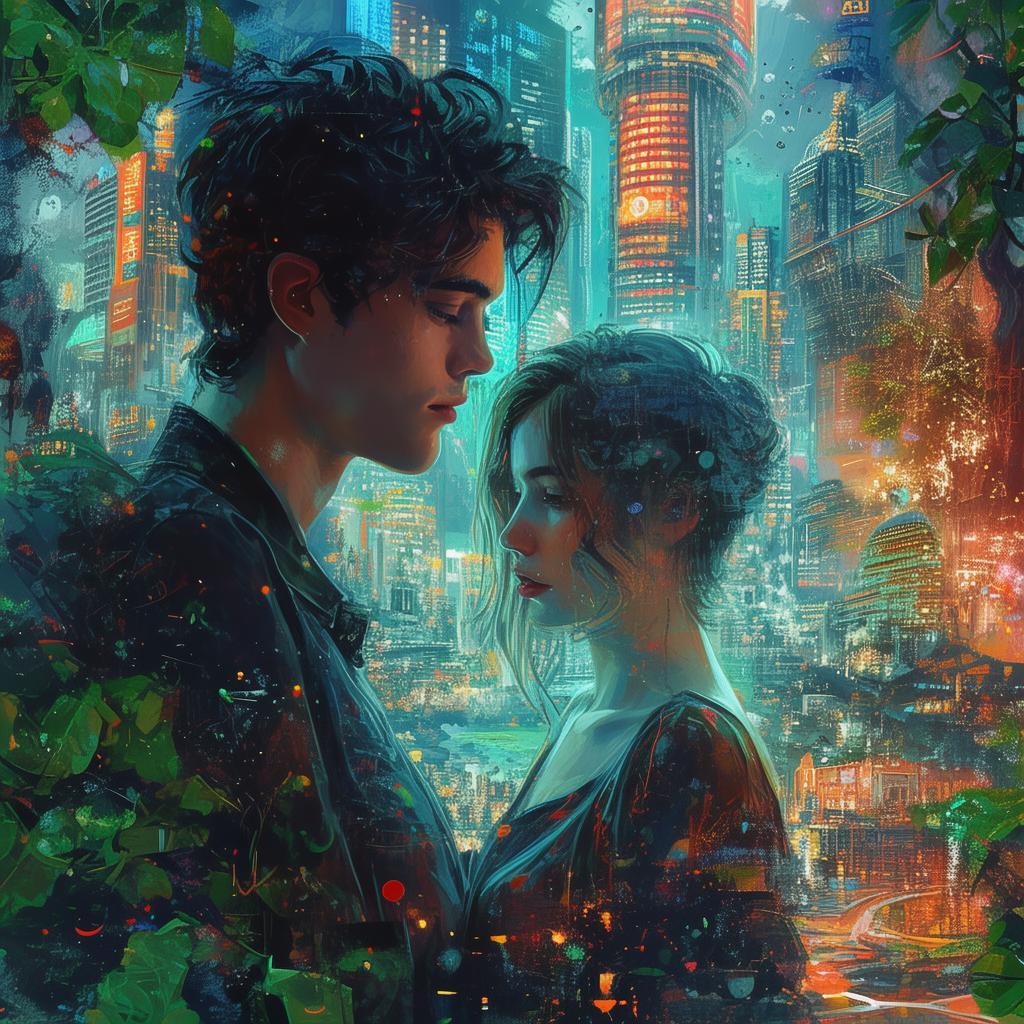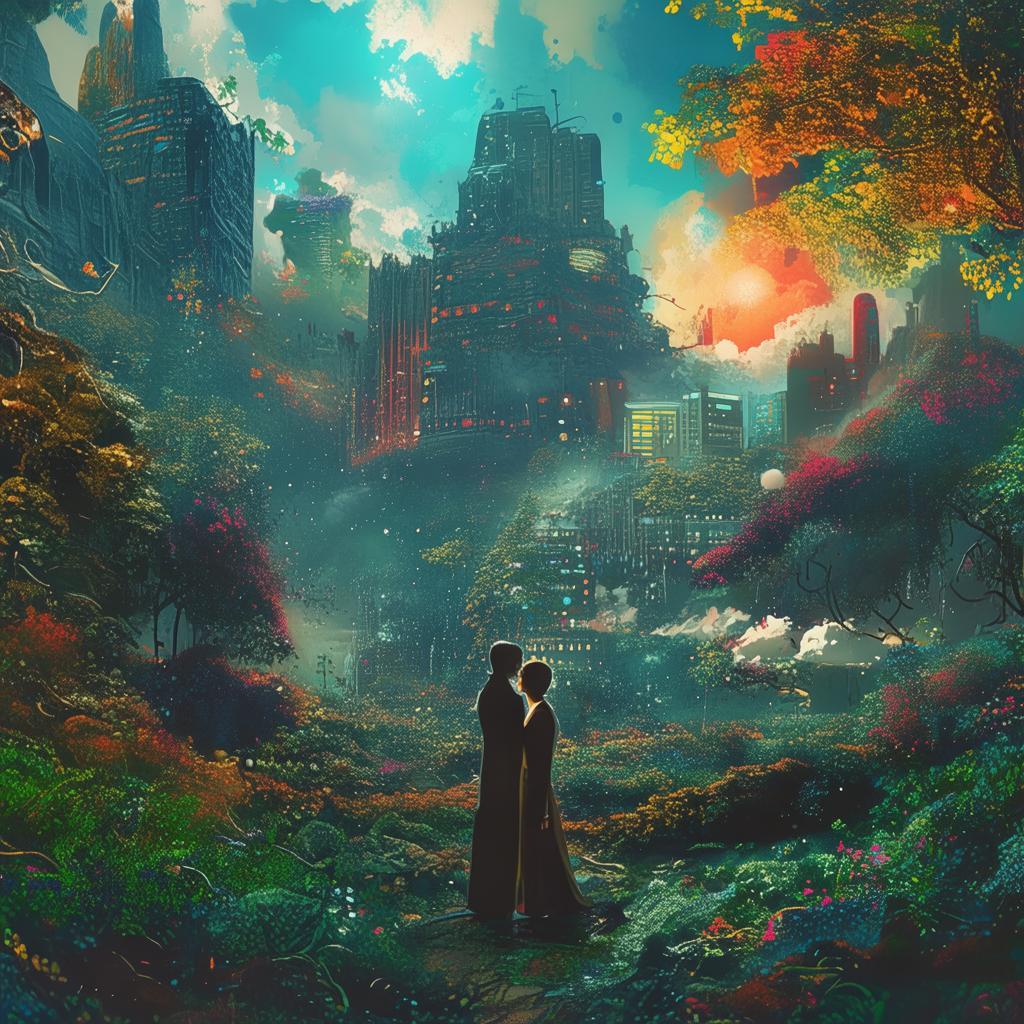When the Past Collides with the Present
The sun dipped below the horizon, casting a golden glow over the bustling streets of Beijing. It was a city that had always felt like a distant dream to Mei, a young Chinese-American woman who had grown up in the shadow of skyscrapers and the echoes of her parents' stories. Now, standing on the same ground where her ancestors had once walked, she felt an inexplicable pull, a gravitational force drawing her back to a place she had never truly known.
Mei's parents had immigrated to America in the '80s, leaving behind a life of poverty and struggle. They had spoken of Beijing with a mix of reverence and regret, a city that was both a source of pain and pride. Mei had visited only once, as a child, and the memories were fleeting, like a whisper in the wind.
The hotel room was a modest affair, the kind that would have once been luxurious. Mei unpacked her bags, her fingers tracing the outlines of her suitcase, each fold a story untold. She had come to Beijing for a reason, a reason that had been buried deep within her subconscious, waiting to be unearthed.
Her parents had always spoken of her grandmother, a woman who had remained in Beijing, a relic of a past that they had forsaken. Mei had never seen her grandmother's face, only a photograph that had faded with time. But now, standing in the heart of the city, she felt an inexplicable sense of connection, as if her grandmother's spirit was reaching out to her across the miles.
The next morning, Mei set out to find the address her parents had given her. It was an old, crumbling apartment building, its walls adorned with peeling paint and the memories of generations past. She rang the bell, her heart pounding in her chest. The door creaked open, revealing a woman who looked like her, but with eyes that held the weight of a thousand years.
"Are you Mei?" the woman asked, her voice a mixture of surprise and recognition.
Mei nodded, stepping into the apartment, her senses overwhelmed by the scent of incense and the cacophony of distant chatter. The woman, her grandmother, led her through the narrow halls, her footsteps echoing in the silence.
In the living room, there was a photograph of a young woman, her hair styled in the traditional Chinese manner, her eyes filled with a strength that belied her gentle demeanor. Mei's grandmother pointed to the photograph, her voice trembling.
"This is your mother," she said, "and this is her mother, your grandmother. They were both women of great courage and love."
Mei's eyes filled with tears as she studied the photograph. She had never seen her grandmother, but now, standing in her presence, she felt a connection that transcended time.
Over the next few days, Mei and her grandmother spent countless hours talking, sharing stories, and unraveling the mysteries of their family's past. Mei learned of the sacrifices her ancestors had made, the love that had kept them connected despite the distance, and the resilience that had allowed them to survive in a world that had little room for them.
One evening, as they sat together in the living room, Mei's grandmother turned to her and said, "Mei, you are a part of two worlds, and that makes you special. You must embrace both, for they are part of who you are."
Mei nodded, understanding the weight of her grandmother's words. She had always felt like a bridge between two worlds, a person who was neither fully American nor fully Chinese. But now, she realized that her identity was not a contradiction, but a testament to the love that had bound her family together across the years.
As the days passed, Mei's grandmother shared stories of her own love, a love that had transcended cultural barriers and had brought her to Beijing. It was a love that had shaped her life, and it was a love that Mei now understood in a deeper way.
One evening, as they sat together on the balcony, overlooking the city that had once been their home, Mei's grandmother spoke of a man, a man who had loved her deeply, a man who had left her in the prime of her life.
"He was a good man," she said, her voice filled with a bittersweet nostalgia. "But life is full of choices, and sometimes, the heart must choose love over all else."
Mei listened, her heart aching for the woman who had loved so deeply and lost so much. She realized that her own journey was a testament to the same love, a love that had bound her family together across the oceans and the years.
As Mei prepared to leave Beijing, she knew that her life would never be the same. She had found a piece of herself that had been missing, a piece that had been hidden away in the shadows of her past.

Back in America, Mei began to weave the threads of her past and present together, creating a tapestry of love and identity. She spoke of her grandmother, of the city of Beijing, and of the love that had bound two worlds.
And as she shared her story, she realized that her journey was not just her own, but a journey that connected her to all those who had ever loved deeply, across cultures and across time.
The Beijing Paradox The Love That Bound Two Worlds was a story of love, of identity, and of the enduring power of the human spirit. It was a story that would resonate with anyone who had ever felt the pull of their past, the weight of their heritage, and the beauty of love that transcends all boundaries.
✨ Original Statement ✨
All articles published on this website (including but not limited to text, images, videos, and other content) are original or authorized for reposting and are protected by relevant laws. Without the explicit written permission of this website, no individual or organization may copy, modify, repost, or use the content for commercial purposes.
If you need to quote or cooperate, please contact this site for authorization. We reserve the right to pursue legal responsibility for any unauthorized use.
Hereby declared.









